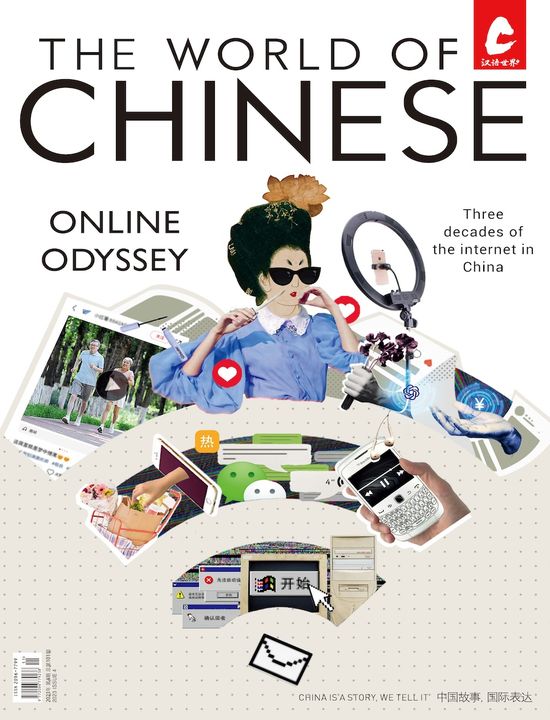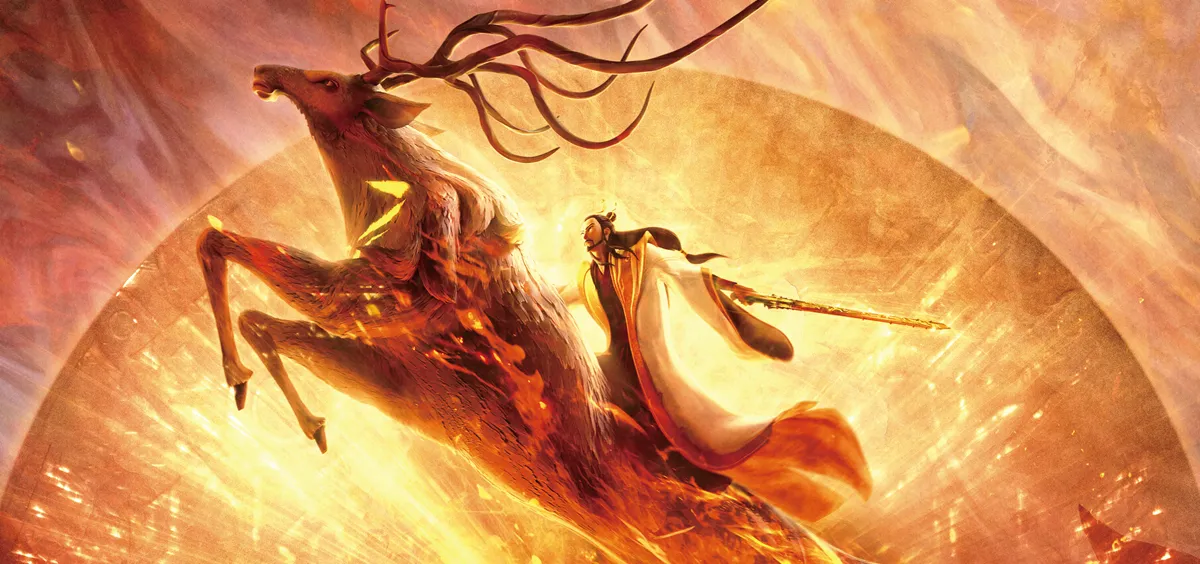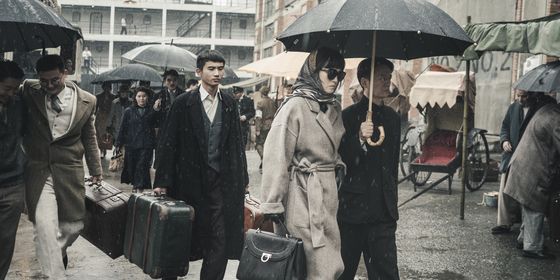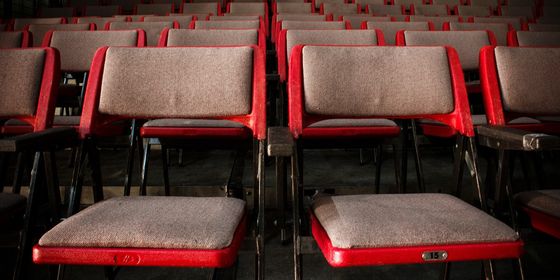Can the legend of Jiang Ziya propel Chinese animated cinema to new heights?
Is it right to sacrifice the life of one person to save the lives of many? This age-old moral dilemma gets a 3D computer-animated treatment in directors Cheng Teng and Li Wei’s fantasy film Jiang Ziya, or Legend of Deification, which updates an ancient historical figure with Chinese mythology and modern ethical questions over fate.
The long-awaited blockbuster, originally scheduled for release prior to the Spring Festival in January, finally hit the big screen on October 1 for China’s “Golden Week” holiday after months of delay due to the Covid-19 pandemic. Featuring a fictional version of Jiang Ziya (姜子牙), a military strategist born in the 12th century BCE, the plot is loosely based on the novel The Investiture of the Gods from the Ming dynasty (1368 – 1644), in which the historical Jiang appears as the ruler of all gods.
Unlike the snowy-haired, white-bearded portrayals of ancient sages in most movies, this version of Jiang is middle aged. A top commander in the divine Kunlun army, he is ordered to execute the menacing Nine-Tailed Fox Demon, who poses a grave threat to the existence of humankind. But upon discovering that the Fox Demon shares the body of an innocent young girl named Jiu, Jiang decides to disobey Heaven’s edict, and sets the girl free before killing the beast, for which he is deprived of his immortality and banished to the mortal realm.
Ten years later, Jiang still believes he made the right decision. At a tavern, he meets a girl with fox-like ears who resembles Jiu, and accompanies her on a journey to seek her father while trying to figure out the mystery of her identity, and questioning heaven’s laws and his own morals in the past.
The adventure epic raked in 360 million RMB on its first day, the biggest-ever single day box office intake for a homegrown animated feature. Sharing the same producer with 2019’s Ne Zha, with years of development and thousands of staff working on its art design, Jiang Ziya was expected to continue the upswing of the domestic animation industry started by the 2019 film, which was unexpectedly well-received abroad and became the second-highest grossing film of all time in China.
In a clear echo of Ne Zha, Jiang Ziya asserts that true heroes make their own destiny, regardless of what fate decrees. Ne Zha is born as a demon, but finds his humanity, while Jiang Ziya questions the gods’ concern for mortals and finally defies the Heavens to free humankind from their control. These profound themes have divided critics’ opinions, with some dismissing them as unrealistic, while others applauded what they saw as efforts by an animated movie to tell stories not merely for children.
The spectacular epic, however, still suffers from weak storytelling, spending most of the time on atmosphere and action sequences. Why did Jiu insist on seeking her father? Why does Jiang Ziya help her? What role does King Zhou of Shang, another historical figure who makes a cameo in the movie, play in the plot development? Instead of having backstories, Jiu and other characters seem to be tools that help show the compassion of Jiang, causing confusion among many who viewed the film.
Despite impressively elegant scenes, the lack of narrative and character complexity make the film fall flat. And in spite of its flying start, Jiang Ziya’s box office began to drop below 10 million RMB on its 12th day, with disappointed audiences citing lackluster execution of the plot, while Ne Zha still enjoyed 100 million RMB more than two weeks after release.
Nevertheless, the film is a game effort at injecting Chinese domestic movies with more diversified and mature themes. Reviving mythological figures like Jiang Ziya and Ne Zha has provided a fresh perspective for audiences on history and culture, and could be the secret ingredient for the domestic animation industry to shake off the perceptions of childishness and rival movies from abroad.
The Master: The sacrificing of one can save all.
Shīzūn: Shā yì rén, ér jiù cāngshēng.
师尊:杀一人,而救苍生。
Jiang: If we sacrificed one, how is that saving all?
Jiāng: Bú jiù yì rén, héyǐ jiu cāngshēng?
姜:不救一人,何以救苍生?
Must-See Movies
Like the Dyer’s Hand
“Heaven uses a hundred misfortunes to fashion one poet,” writes Ye Jiaying, one of the top scholars of classical Chinese poetry in the world, citing the intellectual Wang Guowei to explain how life’s tribulations led her to a deeper understanding of poetry. In this critically acclaimed documentary, Ye’s life story unfolds in poetic narration from herself and her students, peers, and friends. Born in 1924, Ye has lived through war, political turmoil, and extreme personal loss, but has found solace in classical poetry, especially Du Fu’s poems written during the chaotic close of the Tang dynasty (618 — 907). The documentary is not just a biography, but an immersive literary experience.
Coffee or Tea?
Failed serial entrepreneur Wei Jinbei (Liu Haoran) is reluctantly dragged into yet another startup venture by courier Peng Xiubing (Peng Yuchang) to build a rural delivery service in Peng’s home village in Yunnan. Their comical journey involves getting villagers addicted to online shopping, leading to unexpected results. But when they meet Li Shaoqun (Yin Fang), a fellow urban returnee and avid coffee fan, the three get new ideas. Featuring beautiful natural scenery and local rituals like praying to the tea god, this low-budget comedy, which took less than three weeks to produce, was the dark horse during October’s “Golden Week” holiday, earning more than 300 million at the box office.
My People, My Homeland
This follow-up to the 2019 patriotic blockbuster My People, My Country features five stories by seven directors, all set in the countryside. An officially sanctioned film reflecting state ideology, it depicts rural-born individuals returning to give back to their home communities, featuring familiar characters such as dedicated village teachers and plucky rural livestreamers. Several stories are quite entertaining, such as that of a grassroots inventor causing a UFO scare. Some of the beloved actors from My Country reprise their roles, including Ge You as a bumbling Beijing taxi driver.
Leap
This long-anticipated sports film was postponed since late January due to the Covid-19 pandemic. Leap tells the three-decade long journey of China’s women’s volleyball team from underdogs to defending world and Olympic champions. Lang Ping, the legendary player-turned–coach, is the primary character, played by her real-life daughter Bai Lang in her younger years and Gong Li in the present day. The film recreates classic moments from historic matches, and several members of the Chinese national team play themselves, making the action scenes realistic and entertaining to watch. – Liu Jue (刘珏)
Deity Defying is a story from our issue, “Rural Rising.” To read the entire issue, become a subscriber and receive the full magazine. Alternatively, you can purchase the digital version from the App Store.














